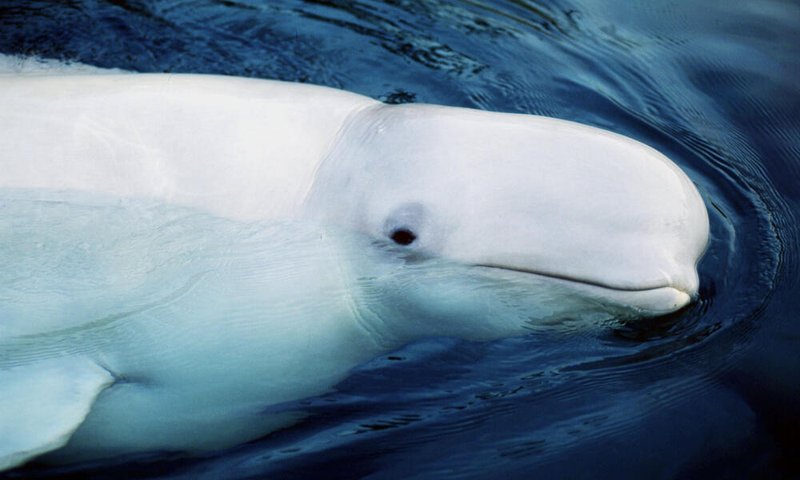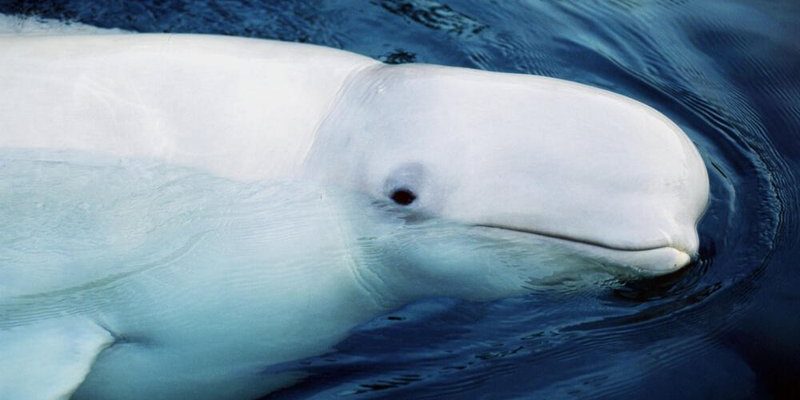
Just like the way a gardener tends to fragile flowers, conservationists are working hard to protect beluga whales from various dangers. Understanding their situation is crucial if we want to see these lovely creatures thrive in our oceans for generations to come. Let’s uncover what’s happening with beluga whales and what you can do to help!
What Makes Beluga Whales Unique?
Beluga whales, often referred to as “canaries of the sea,” are known for their wide range of vocalizations. Their ability to communicate through sounds is quite impressive, and it plays a vital role in their social structures. These whales are typically found in the Arctic and sub-Arctic regions, spending their summers in shallow coastal waters and migrating to deeper waters during the winter months.
Their striking white color isn’t just for looks; it helps them blend into their icy surroundings. But did you know that belugas are also highly social animals? They often travel in groups called pods, which can consist of just a few whales or dozens! Their strong bonds and playful behaviors make them fascinating to observe and study.
Let’s not forget about their diet! Belugas primarily feast on fish, squid, and crustaceans. With their flexible necks, they can easily turn their heads to hunt for food. This flexibility, combined with their echolocation skills, makes them remarkable hunters. But while they play an essential role in their ecosystem, these features also make them vulnerable to environmental changes.
Beluga Whale Population Status
Now, let’s get into the tough part—are beluga whales endangered? Unfortunately, yes. According to the International Union for Conservation of Nature (IUCN), certain populations of beluga whales are classified as endangered, particularly those in areas like the Cook Inlet in Alaska. Their numbers have been dwindling due to various factors, including climate change, pollution, and habitat loss.
To put it into perspective, the Cook Inlet population has seen significant declines over the past few decades. In the early 2000s, estimates showed a population of around 1,000 belugas in the area. Recent studies suggest that this number may have dropped to fewer than 300. That’s a substantial loss!
Additionally, belugas face threats from human activities, such as shipping traffic, oil exploration, and fishing. These activities not only disrupt their habitats but also make it harder for them to find food. As the saying goes, “out of sight, out of mind.” But we can’t afford to ignore these amazing creatures!
Threats to Beluga Whales
Beluga whales encounter several threats in their environments. Here’s a closer look at some of the primary challenges they face:
- Climate Change: As global temperatures rise, the Arctic ice melts, altering the belugas’ habitat. This affects their migration patterns and food availability.
- Pollution: Increases in pollution, including plastics and chemicals, impact the quality of the water and the health of marine life, including belugas.
- Noise Pollution: Underwater noise from ships and industrial activities disrupts belugas’ communication and navigation, making it harder for them to thrive.
- Overfishing: Reduced fish populations due to overfishing mean less food for belugas, which can lead to malnutrition and population decline.
It’s essential to recognize these issues and work toward solutions. Each threat not only impacts the beluga population but also signals larger problems in marine ecosystems as a whole. So, what’s being done about it?
Conservation Efforts for Beluga Whales
Fortunately, various organizations and governments are stepping up to help protect beluga whales. Conservation efforts are akin to a safety net for these animals, aiming to ensure they have a fighting chance. Here’s an overview of some key initiatives:
1. Protected Areas: Establishing marine protected areas (MPAs) helps shield belugas from human disturbances. These zones limit activities such as shipping and fishing, allowing whales to thrive in safer habitats.
2. Research and Monitoring: Ongoing studies allow scientists to track population changes and understand the health of beluga communities. This data is vital for making informed conservation decisions.
3. Legislation: Laws like the Marine Mammal Protection Act in the U.S. offer legal safeguards for belugas and their habitats. This kind of legislation is crucial in making sure they have the support and protection they need.
4. Community Involvement: Local communities play a big role in conservation. Education and awareness initiatives involve residents in protecting their marine environment and help them understand the importance of preserving beluga habitats.
These efforts show that when it comes to conservation, every action counts. It’s like planting seeds in a garden; nurturing them will eventually lead to growth and blooming success.
How You Can Help Beluga Whales
You might be wondering how you can contribute to the conservation of beluga whales. Even small actions can add up to significant change. Here are a few ways to get involved:
- Educate Yourself: Learn about beluga whales and their habitats. The more you know, the better equipped you are to advocate for their conservation.
- Support Conservation Organizations: Donating to organizations focused on marine wildlife protection can make a big difference. Look for nonprofits dedicated to beluga conservation.
- Reduce Plastic Use: Cutting down on single-use plastics helps reduce ocean pollution that can harm marine life. Every little bit helps!
- Participate in Clean-Up Drives: Join local beach clean-ups to remove trash from coastlines. A clean ocean benefits all marine creatures, including belugas.
Remember, conservation isn’t just for scientists and organizations; it’s for everyone. Your support can help ensure a brighter future for beluga whales.
Looking Ahead: The Future of Beluga Whales
As we look toward the future, it’s clear that there’s hope for beluga whales. Conservation efforts are making a difference, but they require ongoing community support and increased awareness. As challenges like climate change continue to evolve, innovative solutions will be needed to adapt and protect these amazing animals.
You might find it inspiring to know that every voice matters in this fight. By staying informed and involved, we can contribute to a healthier marine ecosystem, ultimately benefiting the beluga whales who call our oceans home.
In conclusion, while beluga whales face many challenges, there is a growing movement dedicated to their protection. Together, we can ensure that these extraordinary creatures continue to thrive in our oceans. Our actions today will shape the future of belugas for generations to come, and you can be a part of that journey.

